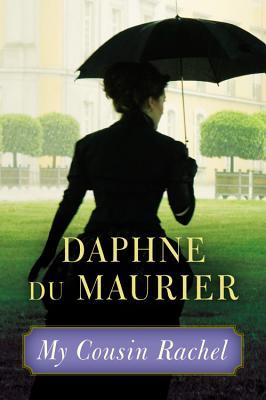
My first and only experience with Daphne Du Maurier’s work is Rebecca, which I utterly loved and enjoyed, so part of the reason I wanted to read My Cousin Rachel was to see if Du Maurier could be good at the slow, dark mystery twice. The answer, emphatically, is yes.
Published in 1951 and set in Cornwall (as was Rebecca), we meet our protagonist, Philip Ashley, an orphan who grows up at his cousin’s estate. As Philip comes of age, cousin Ambrose decides to summer in Italy, which is considerably warmer and drier than the summers in southern western England. Philip stays behind to care for the estate.
Word eventually gets around the Ambrose is unwell, and upon traveling to Italy to check on his cousin, Philip learns that he died of a brain tumor. There, mourning the loss, is Rachel, the woman Ambrose married and who now inherits his Italian villa.
Upon returning to Cornwall, Philip invites Rachel to visit – that’s the nice thing to do, after all – and she comes. Philip inherited the Cornish estate, but feels that transferring that inheritance to Rachel must also be the right thing to do. After all, she was his wife.
Soon, Philip feels unwell, and things around the house don’t feel right. Readers are getting everything from Philip’s point of view, and it’s not long before we’re also wondering if Rachel has something up her sleeve.
The thing about Daphne Du Maurier’s work is this: It is a slow and steady burn, one that peels away layers of the plot gently. Similar to Rebecca, My Cousin Rachel isn’t a book that keeps you on the edge of your seat. Instead, it draws you in, as if you’re also staying on the estate in Cornwall, watching Philip and Rachel interact, wondering if either of them can be trusted but not yet willing to leave because you know more questions are coming.
I enjoy Du Maurier’s writing style tremendously, and I am a total sucker for any book set in Cornwall. Give the first chapter a try to see if it’s for you.
